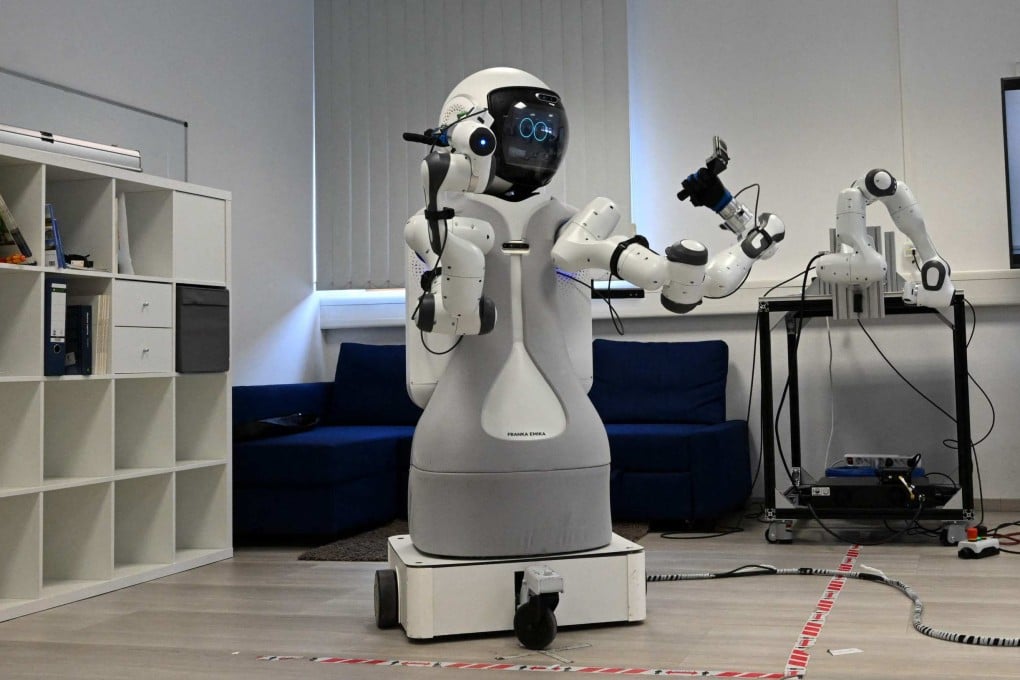Germany taps robot for elderly care amid lack of medical, care workers
- Scientists hope ‘Garmi’ will help perform diagnostics on older patients and provide care and treatment, a product of new ‘geriatronics’ sector
- Europe’s most populated nation is one of world’s most rapidly ageing societies, but around 670,000 carer posts are expected to be unfilled by 2050

The white-coloured humanoid “Garmi” does not look much different from a typical robot. It stands on a platform with wheels and is equipped with a black screen on which two blue circles acting as eyes are attached.
But retired German doctor Guenter Steinebach, 78, says the robot is “a dream” for him.
Not only is Garmi able to perform diagnostics on patients, it can also provide care and treatment. Or, at least, that is the plan.
Garmi is a product of a new sector called geriatronics, a discipline that taps advanced technologies like robotics, IT and 3D technology for geriatrics, gerontology (the scientific study of old age) and nursing.
About a dozen scientists built Garmi with the help of medical practitioners like Steinebach at the Munich Institute of Robotics and Machine Intelligence.
Part of the Technical University of Munich, the institute based its unit specialising in geriatronics in Garmisch-Partenkirchen, a ski resort that is home to one of the highest proportion of elderly people in Germany.
